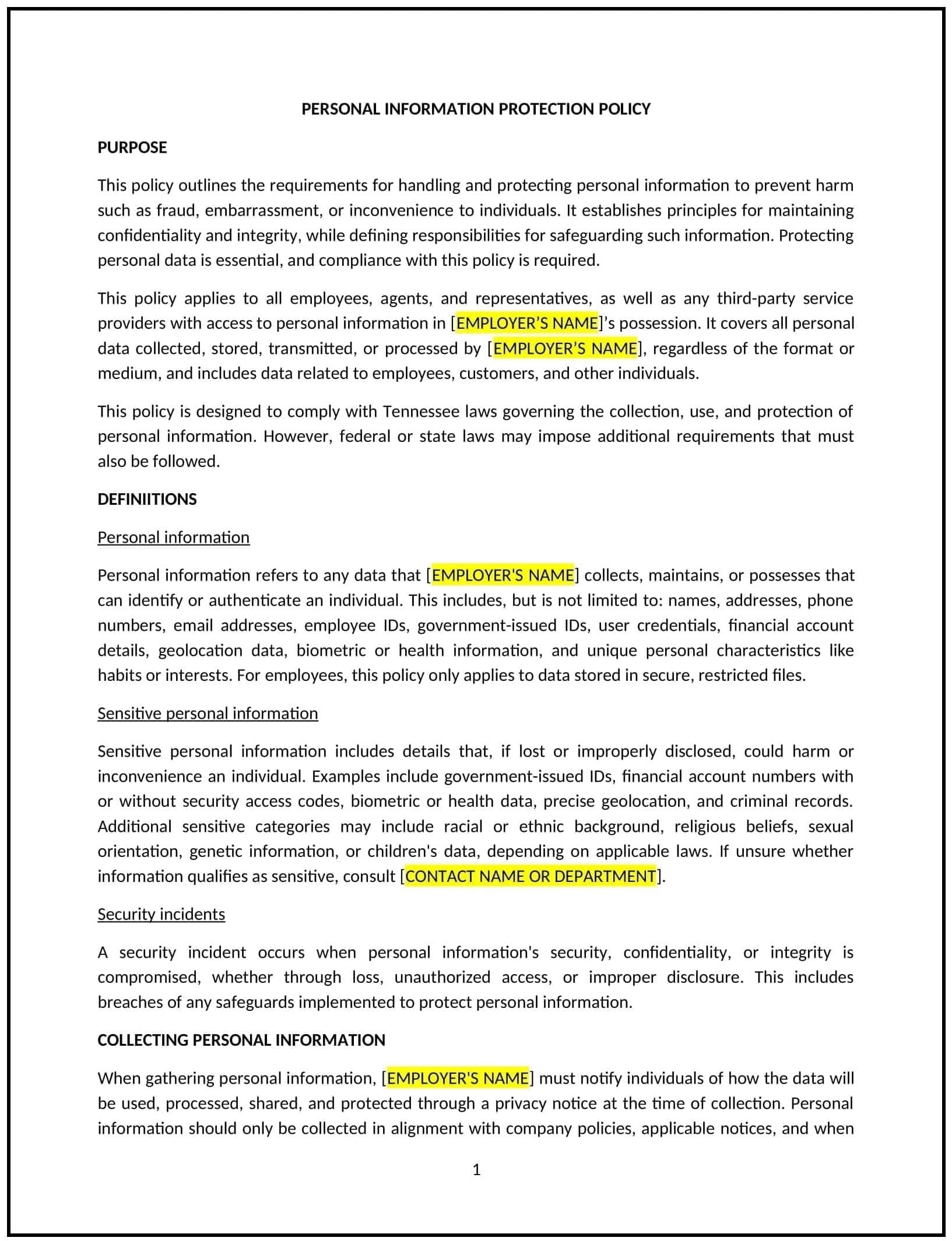Personal information protection policy (Tennessee): Free template
Got contracts to review? While you're here for policies, let Cobrief make contract review effortless—start your free review now.

Customize this template for free
Personal information protection policy (Tennessee)
This personal information protection policy is designed to help Tennessee businesses establish guidelines for safeguarding employees’ and customers’ personal information. It outlines procedures for collecting, storing, and using personal data to ensure privacy and compliance with state and federal laws.
By adopting this policy, businesses can protect sensitive information, reduce the risk of data breaches, and build trust with stakeholders.
How to use this personal information protection policy (Tennessee)
- Define personal information: Clarify what constitutes personal information, such as names, addresses, Social Security numbers, or financial data.
- Set data collection procedures: Outline steps for collecting personal information, including obtaining consent and limiting data to what is necessary.
- Address storage and access: Specify how personal information will be stored securely and who will have access to it.
- Establish usage guidelines: Provide rules for using personal information, such as for business purposes only and prohibiting unauthorized sharing.
- Train employees: Educate staff on data protection best practices and their roles in safeguarding personal information.
- Review and update: Assess the policy annually to ensure it aligns with evolving business needs and legal requirements.
Benefits of using this personal information protection policy (Tennessee)
This policy offers several advantages for Tennessee businesses:
- Protects sensitive information: Reduces the risk of data breaches or unauthorized access to personal data.
- Enhances trust: Builds confidence with employees and customers by demonstrating a commitment to privacy.
- Reduces risks: Minimizes the potential for legal disputes or reputational damage caused by data mishandling.
- Promotes accountability: Encourages employees to take responsibility for protecting personal information.
- Aligns with best practices: Supports a structured approach to data protection.
Tips for using this personal information protection policy (Tennessee)
- Communicate the policy: Share the policy with employees and include it in the employee handbook.
- Provide training: Educate staff on data protection best practices and their roles in safeguarding personal information.
- Monitor compliance: Regularly review data handling practices and security measures.
- Address issues promptly: Take corrective action if data breaches or policy violations occur.
- Update regularly: Assess the policy annually to ensure it aligns with evolving business needs.